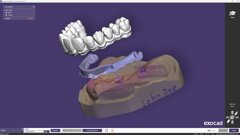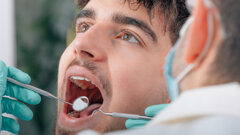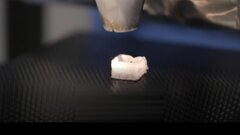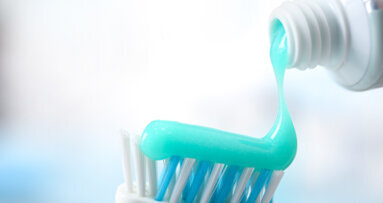WARSAW, Poland: There has long been a debate around what constitutes excessive time spent on devices and the adverse health effects of this. In a new study from Poland, researchers have found that 3 hours or more of computer use by teenagers is enough to put their oral health at risk.
Through a questionnaire on socio-economic status and health‐related behaviour, the researchers collected data from 1,611 18‐year‐olds from Poland and then clinically assessed the condition of the participants’ teeth and gingivae. The results showed that those who spent more time on a computer were less likely to brush their teeth, floss and visit the dentist. The findings were particularly severe for boys who spent excessive time on a computer: they were 50% less likely to brush their teeth twice a day.
Speaking to Dental Tribune International, lead researcher Prof. Jacek Tomczyk, Director of the Institute of Ecology and Bioethics at Cardinal Stefan Wyszyński University in Warsaw, said that the results of the study demonstrate a clear association between computer use and oral health. “Our study proved that the youth who often spend time in front of the computer have bad eating habits and poor oral hygiene behaviour, both of which influence their oral health.”
According to Tomczyk, education around oral health is a contributing factor. He believes that those who spend excessive time on a computer must be made aware that such behaviour can foster poor dietary and oral health habits. “Moreover, habits that develop during adolescence usually persist in adulthood,” he noted.
“We are not suggesting the banning of computers, but there must be more knowledge and awareness around the issue,” continued Tomczyk.
The study, titled “Excessive computer use as an oral health risk behaviour in 18‐year‐old youths from Poland: A cross‐sectional study”, was published online on 1 May 2019 in Clinical and Experimental Dental Research.
Tags:
MELBOURNE, Australia: The idea that oral health comes down to genetics can be a damaging one. According to authors of a recent study, which followed the ...
BILBAO, Spain: While the systemic health implications of neuropsychiatric disorders are well recognised, their connection to poor oral health—in ...
AMMAN, Jordan: As artificial intelligence continues to expand its role in healthcare, large language models such as ChatGPT are increasingly being used to ...
LONDON, UK: Though elite athletes generally possess an enviable level of physical fitness, a recent study has shown that their oral health may leave much to...
DURHAM, N.C., U.S.: In a recent study, researchers from Duke University in Durham have found that the walking speed of 45-year-olds can reveal a ...
BELÉM, Brazil: Television can often play a key role in determining what foods people purchase, thanks to its high concentration of food product ...
HELSINKI, Finland: Scientists have previously identified obesity and increasing age as risk factors for gestational diabetes mellitus (GDM). Some scholars ...
ATLANTA, U.S.: When it comes to oral health, creating good habits in children can have lasting positive impacts later in life, however as with most things, ...
SYDNEY, Australia: The underlying causes of central sensitisation disorders such as migraine and fibromyalgia are poorly understood. The gut–brain axis ...
DUBAI, UAE: Improved medical care has led to a higher life expectancy for individuals with Down’s syndrome, resulting in an increased need for dental care...
Dr. Vasiliki Maseli DDS, MS, EdM
Live webinar
Wed. 4 March 2026
12:00 pm EST (New York)
Munther Sulieman LDS RCS (Eng) BDS (Lond) MSc PhD
Live webinar
Wed. 4 March 2026
1:00 pm EST (New York)
Live webinar
Wed. 4 March 2026
8:30 pm EST (New York)
Lancette VanGuilder BS, RDH, PHEDH, CEAS, FADHA
Live webinar
Fri. 6 March 2026
3:00 am EST (New York)
Live webinar
Tue. 10 March 2026
4:00 am EST (New York)
Assoc. Prof. Aaron Davis, Prof. Sarah Baker
Live webinar
Tue. 10 March 2026
8:00 pm EST (New York)
Dr. Vasiliki Maseli DDS, MS, EdM



 Austria / Österreich
Austria / Österreich
 Bosnia and Herzegovina / Босна и Херцеговина
Bosnia and Herzegovina / Босна и Херцеговина
 Bulgaria / България
Bulgaria / България
 Croatia / Hrvatska
Croatia / Hrvatska
 Czech Republic & Slovakia / Česká republika & Slovensko
Czech Republic & Slovakia / Česká republika & Slovensko
 France / France
France / France
 Germany / Deutschland
Germany / Deutschland
 Greece / ΕΛΛΑΔΑ
Greece / ΕΛΛΑΔΑ
 Hungary / Hungary
Hungary / Hungary
 Italy / Italia
Italy / Italia
 Netherlands / Nederland
Netherlands / Nederland
 Nordic / Nordic
Nordic / Nordic
 Poland / Polska
Poland / Polska
 Portugal / Portugal
Portugal / Portugal
 Romania & Moldova / România & Moldova
Romania & Moldova / România & Moldova
 Slovenia / Slovenija
Slovenia / Slovenija
 Serbia & Montenegro / Србија и Црна Гора
Serbia & Montenegro / Србија и Црна Гора
 Spain / España
Spain / España
 Switzerland / Schweiz
Switzerland / Schweiz
 Turkey / Türkiye
Turkey / Türkiye
 UK & Ireland / UK & Ireland
UK & Ireland / UK & Ireland
 Brazil / Brasil
Brazil / Brasil
 Canada / Canada
Canada / Canada
 Latin America / Latinoamérica
Latin America / Latinoamérica
 USA / USA
USA / USA
 China / 中国
China / 中国
 India / भारत गणराज्य
India / भारत गणराज्य
 Pakistan / Pākistān
Pakistan / Pākistān
 Vietnam / Việt Nam
Vietnam / Việt Nam
 ASEAN / ASEAN
ASEAN / ASEAN
 Israel / מְדִינַת יִשְׂרָאֵל
Israel / מְדִינַת יִשְׂרָאֵל
 Algeria, Morocco & Tunisia / الجزائر والمغرب وتونس
Algeria, Morocco & Tunisia / الجزائر والمغرب وتونس
 Middle East / Middle East
Middle East / Middle East











































To post a reply please login or register